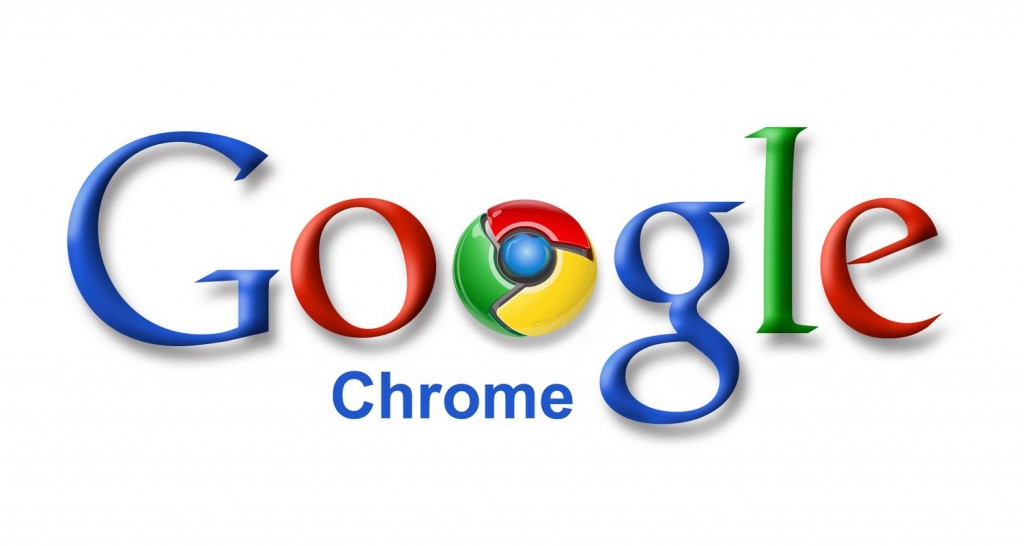
Google rejects bid to sell Chrome browser, proposes licensing restrictions Punch Newspapers
source
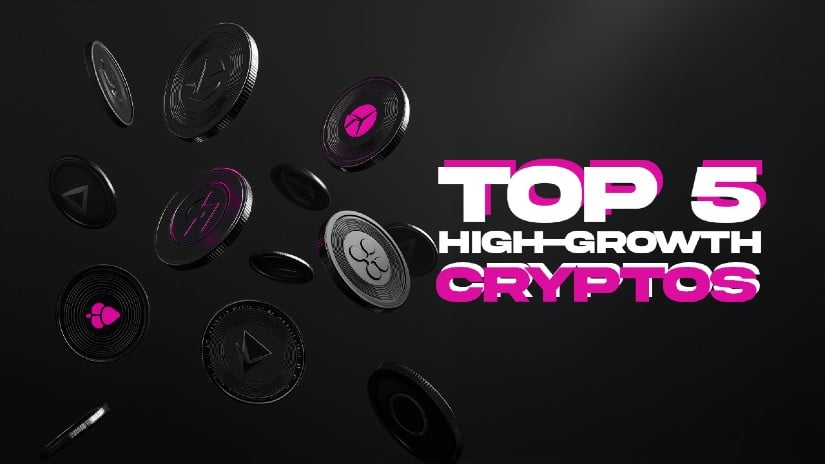
It’s addressing some of crypto’s most frustrating real-world issues with game-changing tools like a decentralised VPN and other revolutionary applications.
Cryptocurrencies have been buzzing lately, haven’t they? With Bitcoin’s rally toward $108,000 grabbing headlines and projects like Solana and Ripple making significant ecosystem strides, the digital currency world is anything but dull.Investors are itching to identify the best coins to invest in right now, and the market’s explosive growth proves there’s never been a better time to get in on the action.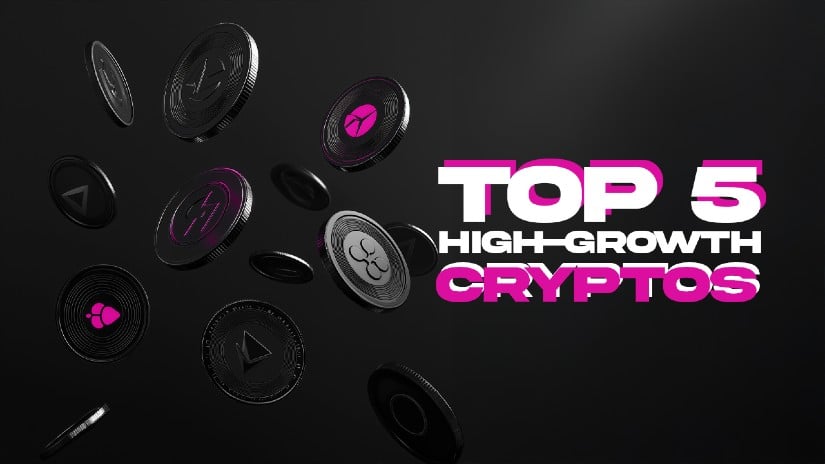
But here’s where it gets really exciting: a new Layer 1 project called Qubetics ($TICS) is shaking things up. Its presale has hit over $7.3 million in funding, with more than 363 million tokens already sold. What sets Qubetics apart? Intrigued? You should be. Let’s dive into why $TICS, along with some tried-and-true heavyweights, makes this list.
Right now, Qubetics is turning heads for all the right reasons. In its 13th presale stage, $TICS has already raised $7.3 million and sold over 363 million tokens to more than 10,900 holders. Priced at $0.0342, these tokens offer a unique entry point for savvy investors looking to grab them before the price surges by 10% in the next stage this weekend.
What makes this presale so compelling? It’s not just hype—it’s Qubetics’ robust ecosystem. Unlike many crypto projects that fail to integrate seamlessly into our daily lives, Qubetics offers tools like the Multi-Chain Wallet and a decentralised VPN that directly address real-world issues. The buzz isn’t just in the numbers; it’s in the value proposition.
Imagine you’re a remote worker, bouncing between coffee shops, airports, and co-working spaces. Every time you log into public Wi-Fi, you’re rolling the dice on your personal security. That’s where Qubetics’ decentralised VPN comes in. It lets users browse the web in an encrypted environment, shielding their data from prying eyes.
But wait, there’s more. The decentralised VPN also offers users the opportunity to lease out unused bandwidth, creating a second income stream. Think about it—business owners can monetise their networks during off-hours, and gamers or freelancers can turn idle internet into cash. Qubetics is flipping the script on how we think about privacy and profitability.
Qubetics is leading the charge into the future of blockchain by solving problems that have held the industry back. With its presale flying off the shelves and tools that blend security and opportunity, $TICS is one of the best coins to invest in right now.
Bitcoin recently reached an all-time high of $108,244. But as quickly as it climbed, it tumbled to $97,000, pulled down by profit-taking and the Federal Reserve’s hawkish stance on rate cuts. Despite the dip, Bitcoin remains the market’s cornerstone, continuing to weather macroeconomic pressures with resilience.
Long-term holders are sticking with Bitcoin, a testament to its role as digital gold. Plus, with institutions like BlackRock throwing their weight behind Bitcoin ETFs, the future for BTC looks as strong as ever.
Bitcoin is a no-brainer. It’s the OG crypto, the bellwether of the market, and a store of value like no other. Whether you’re a first-timer or a seasoned pro, BTC is one of the best coins to invest in right now.
Ripple’s legal troubles may have dominated headlines, but the launch of its RLUSD stablecoin has reminded the world that XRP is here to stay. This move positions Ripple as a key player in cross-border payments and financial stability.
Despite regulatory uncertainty, Ripple’s utility in real-world transactions makes it a powerful contender. Investors and institutions alike are recognising its potential to disrupt traditional finance.
XRP isn’t just surviving—it’s thriving. Its technology is setting standards in cross-border transactions, making it a smart pick for anyone seeking the best coins to invest in right now.
Solana recently faced a tough week, slipping below $196. But here’s the kicker: its ecosystem remains vibrant, boasting one of the highest transaction speeds in the industry. Developers love Solana for its low fees and scalability, which keeps it in the spotlight.
While volatility has shaken short-term holders, the network’s Total Value Locked (TVL) continues to attract DeFi enthusiasts. With growing adoption and technical strength, Solana is far from down and out.
Solana is a fighter. Despite market challenges, its tech is some of the best in the game. It’s undoubtedly one of the best coins to invest in right now.
Binance Coin, the powerhouse token of the Binance ecosystem, is riding high on its robust utility. From trading fee discounts to powering Binance Smart Chain projects, BNB is at the centre of a thriving ecosystem.
Even with regulatory hurdles, Binance remains a global leader in crypto exchanges. BNB holders are reaping the benefits of a token that delivers both utility and growth.
BNB is more than a coin; it’s a gateway to one of the most extensive ecosystems in crypto. That’s why it’s one of the best coins to invest in right now.
Qubetics, Bitcoin, Ripple, Solana, and Binance Coin stand out as the best coins to invest in right now. Each brings something unique to the table, from revolutionary new tech like Qubetics’ decentralised VPN to the tried-and-true reliability of Bitcoin and the ecosystem strengths of BNB.
Don’t wait too long to jump in—opportunities like these don’t stick around forever. The Qubetics presale won’t last much longer, and the next stage will see a price hike. Act now, and you could be part of the next big wave in cryptocurrency innovation.
Qubetics: https://qubetics.com
Telegram:https://t.me/qubetics
Twitter:https://x.com/qubetics
This is a sponsored article. Opinions expressed are solely those of the sponsor and readers should conduct their own due diligence before taking any action based on information presented in this article.
21 Dec 2024
21 Dec 2024
21 Dec 2024
Press Release|21 Dec 2024|Press Releases|
Press Release|21 Dec 2024|Press Releases|
Press Release|21 Dec 2024|Press Releases|
Marigold Twists|21 Dec 2024|News|
Jason Jones|21 Dec 2024|News|
Auckland / Melbourne / London / New York / Tokyo
A Techemy company
PO Box 90497, Victoria St West, Auckland Central, 1010, New Zealand.
© 2024 Brave New Coin. All Rights Reserved.

I had emergency surgery awhile back, and the results were so positive that when I went for my follow-up visit there was little to say. So I asked the surgeon how he would untangle the grievous mess that is the U.S. health care system.
“Take the profit motive out of medicine,” was the response. He’s right, but it’s easier said than done; still, we must try.
A frisson went through those who control the giant profit-making health care companies when a patient with a murderous grudge gunned down United Healthcare CEO Brian Thompson in Midtown Manhattan on Dec. 4 – especially after many in the notorious national chat room suggested he might have had it coming.
Murder is never justified, but how did we end up in this dark place, where despite all the billions of dollars poured into the system daily, we’re more frustrated than ever?
The statistics are almost too familiar, but bear repeating: The U.S. has by far the world’s most expensive system, yet has dismal rankings for overall health – and life expectancy in many areas has actually fallen.
One explanation is how two national systems developed in the U.S. and Canada, its nearest and most familiar neighbor.
In both nations, a program called Medicare started in the mid-1960s, but quickly diverged.
In Canada, the system covers everyone. No patient gets a bill; costs are negotiated and allocated among providers, with government playing a leading regulatory role.
As in any system, there are complaints – especially the waits for elective surgery that Americans probably wouldn’t tolerate. But satisfaction among Canadians is far, far higher than ours, and costs are much lower.
In the U.S., Medicare covers only those 65 and up. It’s “single payer,” meaning the federal government pays the bills and raises tax revenue to support it.
Yet since the early 2000s, Medicare has been invaded by private interests – both through the “Advantage plans” government subsidizes even though it could offer the same benefits directly, and Part D prescription drug coverage, which – at Republican insistence – allows manufacturers to charge the taxpayer whatever they want.
Only with President Biden’s foot-in-the-door bill requiring price negotiations on a few high-price drugs have we seen any relief, but drug costs will remain a major problem.
Then there’s the enormous bulking-up of provider networks, with larger and larger companies buying up more and more hospitals and physician practices.
Even in Maine, where non-profit “charitable” organization remains the model, just two companies – Maine Health in Portland and Northern Light in Bangor – control the vast majority of care.
We should recall that these hospital consortiums are private entities whose decisions are opaque to the public. What maternity wards remain open, what staffing levels are maintained, what new services are offered is largely private and unaccountable, not reviewed by any public agency.
In the end, we have huge providers and drug companies trying to maximize revenues, opposed by insurers who try to contain costs largely by denying claims.
It’s no secret who’s being squeezed – patients and their doctors.
Everywhere, doctors say they can no longer select the most effective treatment; instead, they prescribe what insurers will pay for, a constantly changing target.
The Affordable Care Act of 2009, the most significant change in the system since Medicare began in 1965, and President Obama’s signature achievement, did tackle the biggest problem of the day – the uninsured. But it did so by vastly increasing those on private insurance, perhaps accelerating the consolidation that elevates the “profit motive” ever higher.
We’ll never fundamentally change the system until we recognize that we need a national system under public control, just like every other advanced country.
Calling it “single-payer” is perhaps the worst euphemism ever coined, meaningless to the average person. We can call it “national” or “universal” or even “government directed” but it’s the only way to reclaim our rights.
Such changes are a remote possibility with the incoming administration, since Donald Trump rarely mentions health care, and has no plan beyond the vestigial Republican impulse to “repeal Obamacare,” which is never going to happen.
Except for recanting her earlier support for “single payer,” Kamala Harris had little to offer, either.
Proponents of national health care should get busy developing a real plan, showing how Medicare can be purged of profit-seeking, private insurance contained, drug prices regulated and state-run Medicaid programs, which vary widely, made subject to federal standards.
Then we’d have something closer to “Medicare for All” – no longer just a slogan – and finally achieve something for all Americans closer to Canada’s efficient delivery system.
It may seem impossible, but we’ve confronted and solved difficult problems before. Let’s face it: Nothing changes until we demand change.
Douglas Rooks has been a Maine editor, columnist and reporter for 40 years. He is the author of four books, most recently a biography of U.S. Chief Justice Melville Fuller, and welcomes comment at drooks@tds.net

This photo taken on Dec. 2, 2023 shows herbal tea drinks at a tea shop in Kunming, capital of southwest China’s Yunnan Province. (Xinhua)
This undated photo shows a staff member making herbal tea drinks at a tea shop in Xining, northwest China’s Qinghai Province. (Xinhua)
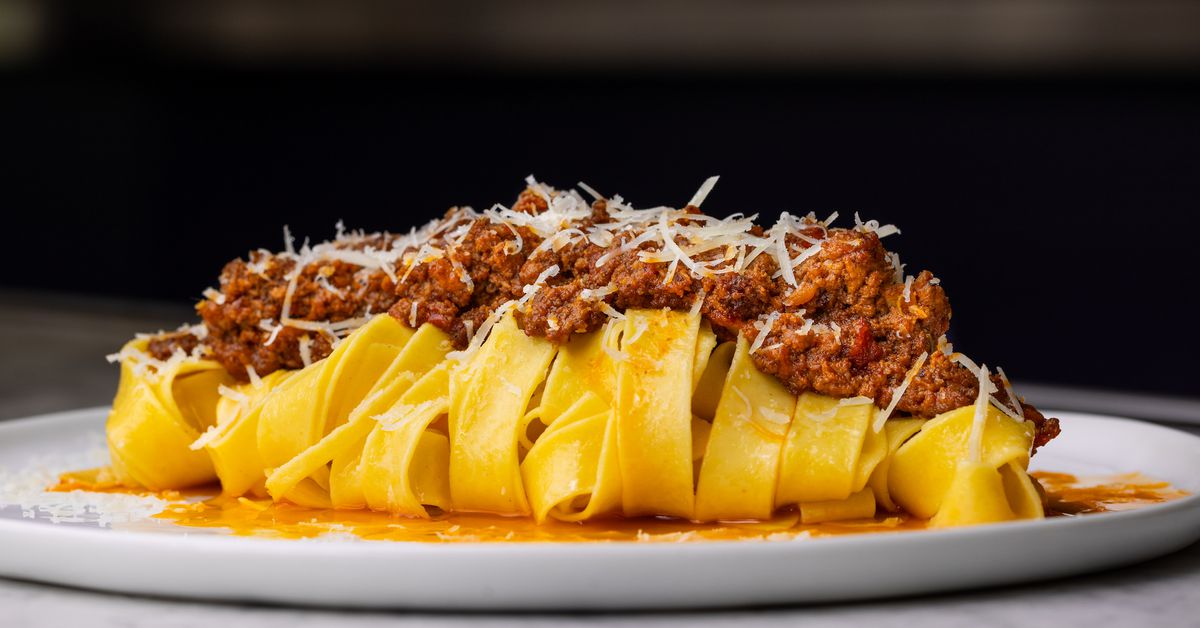
Filed under:
Chef Lucio Bedon’s new Vicini takes over the closed Louise’s Trattoria on Pico in Rancho Park
An LA Italian chef with a long resume is finally moving into his own Westside space this month. Chef-owner Lucio Bedon will debut his Vicini Ristorante & Wine Bar in a matter of days at 10645 W. Pico Boulevard, formerly the home of longtime hangout Louise’s Trattoria in the Rancho Park/West LA area. It’s a homecoming of sorts for Bedon, who has cooked at some of the best Italian places around — including this very address, years ago.
Bedon’s smile may be familiar to Angelenos with a penchant for fine Italian food. He worked for years at Michelin-starred Casa Bianca in Sardinia before moving to Los Angeles to cook under Gino Angelini at Louise’s and, later, with the Patina Group at the closed Zucca restaurant on Flower Street in Downtown. With the new Vicini he plans to wrap all of that knowledge into an approachable package, leaning on his Venetian heritage to turn out crudos, carpaccio, and staple starters like fried squash blossoms with ricotta. There will be salads, pasta and risotto in the primi section, and mains like grilled whole branzino, chicken paillard, and a bone-in ribeye for people seeing a red meat feast. The opening menu is below.
As for the former Louise’s space, which Bedon has been using for more than a year as a catering space while building out the dining room, diners will find an open and relaxed footprint with lots of medium-toned woods and royal blue touches. Long banquettes reach the length of the floor, while sunlight pours in past bar-top tables and the marble bar itself. There’s room for more than 80 people all in, with additional space for a private dining room to boot.
Vicini begins its new journey in mid-August, following a few nights of friends and family tastings and some tweaks along the way. Once open, expect hours from 4 p.m. to 9 p.m., Monday through Thursday, with an extension to 10 p.m. on Friday, Saturday, and Sunday nights.
Related
Sign up for our newsletter.
Check your inbox for a welcome email.
Oops. Something went wrong. Please enter a valid email and try again.

The Mega Millions jackpot rolls over again and moves into No. 7 on the list of highest jackpots in the game’s history after no one matched all six numbers from Tuesday night’s lottery drawing.
Grab your tickets and let’s see if you’re the game’s newest millionaire.
Here are the numbers for the Friday, Dec. 20, lottery drawing jackpot worth $862 million with a cash option of $392.1 million.
Mega Millions, Powerball:What to do if you win the Powerball or Mega Millions jackpot
Friday night’s winning numbers were 2, 20, 51, 56, 67, and the Mega Ball was 19. The Megaplier was 2X.
No one matched all six numbers to win the Mega Millions jackpot.
Two tickets sold in Indiana, a ticket bought in Arkansas, a ticket purchased in Illinois and a ticket picked up in Pennsylvania matched all five numbers except for the Mega Ball worth $1 million.
Powerball numbers:Anyone win Wednesday night’s drawing?
You only need to match one number in Mega Millions to win a prize. However, that number must be the Mega Ball, worth $2.
Matching two numbers won’t win anything in Mega Millions unless one of the numbers is the Mega Ball. A ticket matching one of the five numbers and the Mega Ball is worth $4. Visit www.megamillions.com for a complete list of payout information.
Mega Millions numbers you need to know:Most commonly drawn numbers
The Mega Millions jackpot for Tuesday’s drawing continues to grow at an estimated $944 million with a cash option of $429.4 million, according to megamillions.com.
Drawings are held two times per week at approximately 10 p.m. CT every Tuesday and Friday. You can watch drawings via YouTube.
A Mega Millions ticket costs $2 per play. For an additional $1, players can add the Megaplier to potentially increase their winnings outside of the jackpot.
Here’s how to play Mega Millions:
Mega Millions, Powerball numbers:Want to win the lottery? Here are luckiest numbers, places to play
The winning numbers for Wednesday night’s drawing were 6, 15, 18, 33, 49, and the Powerball is 7. The Power Play was 2X.
The current Powerball jackpot continues to grow to an estimated $88 million with a cash option of $41.0 million, after no one matched all six numbers from Wednesday night’s drawing.
Here is the list of 2024 Mega Millions jackpot wins, according to megamillions.com:
Mega Millions numbers:Anyone win Tuesday night’s drawing?
Here are the all-time top 10 Mega Millions jackpots, according to megamillions.com:
Here are the nation’s all-time top 10 Powerball and Mega Millions jackpots, according to powerball.com:
Chris Sims is a digital content producer for Midwest Connect Gannett. Follow him on Twitter: @ChrisFSims.

Zodiac Signs That Can Become Good Detective
Zodiac Signs that Have the Cutest Smile
5 Most Generous Zodiac Signs
Zodiac Signs Who Should Believe Their Intuition
5 Zodiac Signs That Are Masters of Manipulation
5 Most Stylish Zodiac Signs
Zodiac Signs That Are Extremely Loving
5 Zodiac Signs Who Always Act Like Smart
Zodiac Signs That Love to be Single
Top 6 Religious Zodiac Signs As Per Astrology

As you gather all the last-minute holiday packages arriving at your doorstep, be careful about any that you didn’t order or ones that don’t have a return address and want you to scan a QR code: it could be a scam.
These so-called brushing scams have been around for a few years and there’s a few varieties. They can range from a “victimless” crime to one that involves scanning a QR code to find out who the package is from.
That could lead consumers to a site tricking them to enter personal information, similar to a phishing scam. In some cases, malicious QR codes could also install malware to steal information from the consumer’s phone.
Police departments around the country have been sharing warning messages on social media about the scams this holiday season.
The reports of the brushing scam started a few years ago with packages appearing on people’s doorsteps. But when consumers were trying to figure out if it was something they ordered, they contacted Amazon or the retailer only to be told to just keep it, even if it wasn’t something they ordered.
Holiday deals: Shop this season’s top products and sales curated by our editors.
Many packages are from Amazon, but from third-party sellers – and an Amazon spokesperson said the company takes action against them.
The sellers are trying to boost their reviews, Jennifer Leach, associate director of the Federal Trade Commission’s Bureau of Consumer and Business Education, told USA TODAY.
“Dishonest businesses and scammers are sending all sorts of unordered junk in the mail – and then writing good reviews for their business in your name,” Leach.
“That’s bad for honest businesses, which don’t cheat to get reviews, but it could be bad for you, too,” she said. “Getting this stuff in the mail could mean a scammer has created an account in your name, taken over your account on the shopping site, or even created new accounts in other names, but tied to your address.”
The consumers receiving the product often aren’t “harmed” in the scam – and they often get to keep the free product – so some call the brushing scams “victimless” crimes. But the items are usually things consumers don’t necessary want and are inexpensive, like ping pong balls or a flashlight.
And future shoppers looking at reviews by the seller who sent the package could be making a bad buying decision based on pumped-up reviews.
If you get an unexpected package, there are several steps you can take to protect your identity,” said Melanie McGovern with the Better Business Bureau.
“First, notify the retailer that you received a package, check your account for recent orders, and change your passwords,” said McGovern, who also encouraged consumers to report the activity to the BBB’s Scam Tracker, www.bbb.org/scamtracker as a warning to others.
Leach with the FTC also said to check online accounts to see if there are any problems.
An Amazon spokesperson provided this statement regarding brushing scams: “Third-party sellers are prohibited from sending unsolicited packages to customers, and we take action when our policies are violated, including by withholding payments, suspending selling privileges, and reporting bad actors to law enforcement.”
Amazon suggests if you receive a package or item that you didn’t order, check with friends and family or contact Amazon customer service to confirm it’s not a gift to you. If you receive a package addressed to someone else, please contact Amazon customer service.
If you can confirm the package addressed to you wasn’t ordered by you or anyone you know, report the package online by going to the Report Unwanted Package form on Amazon at https://account-status.amazon.com/report-unwanted-packages.
“Amazon investigates reports of ‘brushing’ and takes action on bad actors that violate our policies, including suspending or removing selling privileges, withholding payments, and working with law enforcement. Customers don’t need to return the item,” the Amazon spokesperson said.
Another type of brushing scam will also have no return address on an unexpected package, but there will be a QR (quick-response) code with instructions to scan on your phone to see who the package is from.
Scams involving QR codes are not new. But with the popularity of QR codes, which when scanned are a shortcut to a website, and are used for tasks ranging from reading a restaurant menu to paying for parking, there are also bad actors.
If you get a package you are not expecting or you didn’t order, don’t scan the QR code, said the FTC in a blog post in 2023.
“A scammer’s QR code could take you to a spoofed site that looks real but isn’t. And if you log in to the spoofed site, the scammers could steal any information you enter,” the FTC blog post said. “Or the QR code could install malware that steals your information before you realize it.”
Avoid holiday scams:Don’t let fraudsters ruin your holidays. Protect yourself with these tips.
The U.S. Postal Inspection service also recently issued an alert reminding customers not to interact with text messages indicating your package is lost or with tracking information for a package you did not order.
Smishing is a form of phishing, the fraudulent practice of sending messages disguised as reputable sources to get consumers to reveal personal or financial information, as previously reported by USA TODAY.
Betty Lin-Fisher is a consumer reporter for USA TODAY. Reach her at blinfisher@USATODAY.com or follow her on X, Facebook or Instagram @blinfisher. Sign up for our free The Daily Money newsletter, which will include consumer news on Fridays, here.
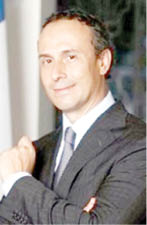
Marc Fonbaustier is the new French Ambassador to Nigeria. In this interview, he spoke about the long-standing relationship between Nigeria and France, saying the closeness did not start with the President Bola Ahmed Tinubu administration. He also spoke on his country’s recent experiences in Niger, Mali and Burkina Faso, and countered the insinuation that Nigeria is only becoming a new ally in an effort to establish new military bases in some parts of the country.
What key areas would you be focusing on concerning the cooperation between France and Nigeria?
As the new Ambassador of France to Nigeria, I had to work, shortly after my arrival on the preparation of the state visit of the president to France at the end of November, which means that I now have a very clear roadmap for my work here during the next years: the joint declaration that was signed between our two governments.
The first five priority areas mentioned in this joint declaration are economic cooperation, cultural and creative industries, agriculture and food security, vocational training and higher education. I believe that these areas reflect very accurately, on the one hand, what Nigeria expects from France, and on the other hand, what France can offer Nigeria, within the framework of a relationship based on respect, shared interest and reciprocity.
How has the relationship between France and Nigeria evolved over the past few years?
Our relationship has come a long way in the last 15 years. In my opinion, the successive stages of this evolution are as follows: first projects supported by our development agency in 2009-2010; in 2014, the strengthening of our security cooperation to combat a common enemy, jihadi terrorism; in 2017, the election of President Emmanuel Macron who, as you know, worked at our embassy for a few months at the beginning of his career in the administration, has fond memories of Nigeria and has paid particular attention to the strengthening of our partnership. In short, the development of our bilateral relationship is the result of two factors: for Nigeria, the diversification of its partnerships; for France, a policy orientation launched more than two decades ago, aiming at strengthening our relationship with all African countries and not only French-speaking African countries.
It is believed that President Bola Tinubu is more amenable to relating with France than any other Nigerian president in recent times, what do you think is responsible for this?
That’s something I was also thinking when I took up this position, but then I looked at the history of our relations since the democratic transition in Nigeria; and if you do that too, you would see that in fact, all Nigerian presidents since the democratic transition have enjoyed excellent relations with France. Just to give the example of presidents Obasanjo and Buhari, it was during President Obasanjo’s mandates that we worked together towards a first phase of diversification in our economic partnership and supported debt relief for Nigeria. It was during President Buhari’s mandates that we strengthened our partnership to improve maritime security and fight terrorism. President Buhari himself made five official visits to France. So yes, our presidents get on well, and that is of course a very good thing, but our bilateral relationship is much more than a person-to-person relationship.
What is the current trade volume between Nigeria and France?
In 2023, the trade between Nigeria and France amounted to 5.1 billion euros. France was Nigeria’s sixth trade partner.
What initiatives has France undertaken to support economic development in Nigeria?
Regarding initiatives that have already started to be implemented, I would like to mention the I-DICE programme that was signed in March 2023. Our funding provides training, mentorship and funding to young entrepreneurs and innovators in the digital technology and creative industries.
Digital technology and creative industries have a huge potential to create jobs and spur economic growth in Nigeria. Among the initiatives that were discussed during the state visit of the president, I would like to point out two projects supporting agriculture and food security through an integrated regional development approach: a programme improving rural and agricultural training in Benue, Oyo and Plateau states through the strengthening of vocational training and entrepreneurship; and the value chain development for northern Nigeria programme in partnership with the International Fund for Agricultural Development, aiming at addressing food security and nutrition concerns in northern Nigeria, with a focus on adaptation to climate change in order to improve productivity and resilience of farming systems.
Can you share some success stories of French investments in Nigeria?
Today, there are around 100 French companies in Nigeria, employing about 16,000 people. I would like to highlight two of them, amongst many others: Danone/Fan Milk, as they have been relentlessly investing over the last years in order to increase local milk production and their dairy products manufacturing capacity. They recently opened a new yoghurt production line in Ibadan. And NutriK, a subsidiary of Nutriset Group based in Kano, manufacturing therapeutic food products while relying as much as possible on locally-produced ingredients. They are doing a great job at making sure that humanitarian interventions benefit not only those who need therapeutic food but also Nigerian farmers.
What are the main challenges French companies face when investing in Nigeria?
I will say that the challenges come mostly from a lack of awareness regarding Nigeria’s potentials. Two essential parts of the visit of the president in Paris were the meeting of the Nigeria-France Business Council, which aimed at enabling partnerships between Nigerian and French companies in order to bridge this awareness gap, and the Business Forum that aimed at highlighting key high-potential sectors of the Nigerian economy: agriculture and agro-industry, infrastructure and energy, as well as new technologies.
How does France view Nigeria’s role in regional security and stability in West Africa?
The Nigerian authorities have repeatedly reaffirmed their intention to help resolve regional security issues, such as terrorism, maritime security or organised crime. We stand ready to support them whenever they request it, in strict compliance with the principle that African problems can only be solved by African solutions.
What would you say on the claim that France is finding succour in Nigeria following its problems with Niger, Chad, Mali and Burkina Faso, among others?
I believe that this claim does not reflect the reality of the relationship between Nigeria and France. The relationship between Nigeria and France did not start the day problems occurred in our relationship with a few of the French-speaking West African countries. Our bilateral relationship has been growing stronger for much longer.
Regarding our relationship with Chad, I would like to highlight that the very communiqué from the Chadian authorities announcing that they were putting an end to the defence cooperation agreement signed with France mentioned that “This decision in no way calls into question the historic relations and friendly ties between the two nations,” and that they remained “open to constructive dialogue to explore new forms of partnership.”
There have been insinuations that France may be complicit in the security situation in Nigeria and West Africa. How true is this allegation?
I am aware that some people have been spreading fake news about this for a long time. Of course there is no truth whatsoever in these insinuations. Our soldiers have fought against terrorist groups for years, side by side with Mali, Burkina Faso and Niger. Fifty-eight of them were killed during operations, which were carried out at the request of West African states.
Just like West African countries, France has been hard hit by the scourge of jihad terrorism. More than 250 of our citizens have been killed by jihad groups in France since 2012. And still, for whatever reason, some people are spreading disinformation. That does not change reality, which is that France has always stood by its African partners in the fight against terrorism. Our common interest is a peaceful and stable world, a peaceful and stable West Africa.
France seems to be losing its influence in Africa, especially in the Sahel. Are you bothered about this situation?
To be very honest with you, I do not fully understand all the commentary regarding this alleged “loss of influence.” Our relationship with the vast majority of African countries is excellent; our partnerships are in fact getting stronger with many countries. Our goal is to foster respectful, balanced and mutually beneficial partnerships, not to “influence.”
Regarding what is happening in West Africa, let’s stick to the facts. At some point, some countries asked us to help them in the fight against terrorism. We sent troops to help them. After a few years, they asked us to withdraw our troops and we withdrew. End of story. In the same way, French military bases were part of our security and defense arrangements with some African states. As times are changing, they are asking us today to close our bases or downsize our military presence. We will do so. End of story. In 1966, French president, Charles de Gaulle asked all NATO foreign troops (mostly troops from the United States of America at the time) to leave French territory. They did so. We are still part of NATO till this day, and we still enjoy an excellent relationship with the United States of America.
There are concerns over France’s alleged plan to build a military base in Nigeria. Are you dumping the idea now?
Nigerian journalists have debunked this fake news on multiple occasions. This idea has never been suggested by either Nigeria or France. There is not the slightest hint of an interest in such a plan, either in Abuja or Paris. It would be interesting to know who is circulating this fake news and for what purpose. In any case, please be rest assured that our security cooperation with Nigeria does not involve any kind of permanent military presence.
With Russia increasing its security support to many African countries, is France looking at the possibility of supporting Nigeria in its fight against insecurity?
I am not sure we are witnessing that much Russian security support to African countries these days. There are indeed a lot of Russian private military companies that seem to be busy, mostly violating human rights and plundering natural resources all over the continent. I do not think we can call that “security support.” Thankfully, many African journalists are doing a great job at uncovering the crimes committed by Russian private military companies all over Africa.
Regarding support from France to Nigeria in its fight against insecurity, yes, this has been happening for quite some time, and it will go on for as long as both countries want it. For instance, we are conducting joint exercises on a regular basis – most recently in Lagos in November 2024. We have sold state-of-the-art equipment to the Nigerian Navy, with tangible effects on maritime security.
What cultural exchange programmes currently exist between France and Nigeria?
In Nigeria, we support a significant network of two French schools, one cultural institute, one research institute and 10 Alliances Françaises, which promote French culture and language; also, all French-speaking expressions from all over Africa, as well as Nigerian artistic productions. We support many producers and young professionals so that they can expand their activities in different sectors, such as fashion, design, animation, music and video games.
At the end of 2025, we will organise the Creation Africa Forum in Lagos, which will bring together over 600 professionals from the African and French creative industries, as jointly decided by our two presidents. This will be an extraordinary way of showcasing the vitality of artistic and creative worlds of the two countries, but also from Africa as a whole, and to illustrate the richness of our partnerships.
I would like to also mention the growing collaborations in higher education and research. More Nigerian students are studying in France – twice as many this year as last – and we are eager to support their career paths and employability when they return to Nigeria. We are also working to improve our academic cooperation, and we are helping teams of researchers from both countries to create projects with a positive impact, for example, around the issue of ecology and recycling on Nigerian campuses.
How is France supporting Nigeria in its fight against climate change?
Among the projects we are funding in Nigeria in order to support its fight against climate change, I would like to highlight, first of all, the credit line we put in place with the Bank of Industry in 2022 for the expansion of green finance in Nigeria in order to finance more projects supporting climate change mitigation and adaptation.
We are also currently working on a programme that aims at supporting the adaptation of the public transportation system in Lagos State through the Omi Eko project, contributing to the reduction of greenhouse gas emissions through electric mobility.
How do you see the future of France-Nigeria relations in the next decade considering the influence of China and Russia in Africa?
In our perspective, African countries, and Nigeria in particular, are not a playing field for competition between international partners. As both our presidents wrote recently in a joint op-ed, “We will not meet the challenges of today’s world by building blocs.”
It is entirely up to African countries to choose their partners. There is room for many international partners in Nigeria, and I am convinced that France has something to bring to the table.
The recent visit of President Bola Ahmed Tinubu to France was an occasion to highlight our shared interest in strengthening our partnership in various areas; and we are already at work.
An area I see as very promising is the support to the agricultural and agri-food sector. I strongly believe that through targeted support to vocational training, production, processing, food markets, together with the Nigerian public and the private sector, as well as other international partners, we can support Nigeria in developing its full potentials and achieving food sovereignty.
Finally, I would like to say that I take very seriously, the need expressed by Nigerian citizens for accountability and transparency on international partnerships. And whenever people ask questions, whenever they ask us to react to any kind of news, true or fake, I will make sure that the Nigerian media and the civil society get answers.
 Join Daily Trust WhatsApp Community For Quick Access To News and Happenings Around You.
Join Daily Trust WhatsApp Community For Quick Access To News and Happenings Around You.
 Join Daily Trust WhatsApp Community For Quick Access To News and Happenings Around You.
Join Daily Trust WhatsApp Community For Quick Access To News and Happenings Around You.